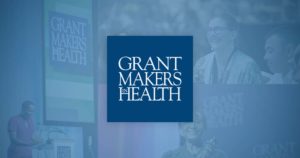Upcoming Events
Past Events
Latest Resources
The Cuban Prescription: Human-Centered Care
Earlier this year, members of Grantmakers In Health’s board and senior staff visited Havana, Cuba, with MEDICC, an organization licensed by the U.S.Department of the Treasury to conduct people-to-people trips to Cuba. The primary objectives of the trip were to see the Cuban approach to health in action, and to consider whether there were takeaway lessons for the U.S. health system.
¡Que Viva! Latinos and Health Care in the South
The Latino population in the southern United States is flourishing, which offers the region an opportunity to enrich the fabric of their communities with dynamic and vital young families who are eager to thrive. This demographic shift has sparked strategic conversations within health philanthropy about how best to ensure that Latino communities in the southern states have access to quality, affordable health care.
2015 Terrance Keenan Award Speech by Gail Christopher
Gail Christopher, Vice President for Policy and Senior Advisor at the W.K. Kellogg Foundation, is honored with the 2015 Terrance Keenan Leadership Award in Health Philanthropy. Listen to the podcast of her acceptance speech “Do All Lives Matter?” delivered at the 2015 GIH Annual Conference on Health Philanthropy. GIH established the Terrance Keenan Award…
Reforming School Discipline Policies to Improve Children’s Success
n recent years, Atlantic deliberately honed its investments and focused its grantmaking on a small number of big bets with potential for significant impact. One of these priorities was the over-use of “zero tolerance” suspensions, arrests, and expulsions, and their role in pushing children of color into the justice system.
Healing All Sons and Brothers: Addressing Gay, Bisexual, and Transgender Boys and Men of Color
Gay, bisexual, and transgender (GBT) boys and men of color face significant stigma and marginalization, based not only on race, but also on gender identity and sexual orientation. As a result, GBT boys and men of color face a number of health inequities, connected to limited access to health care, disproportionate HIV/AIDS rates, inadequate housing, and unsafe schools.
Health in All Policies: What It Is and What It Means for Health Grantmaking
Health in All Policies (HiAP) is an emerging approach to public policymaking, grounded in recognition that the most important determinants of health are outside the reach of the formal health care system. This Issue Focus describes the HiAP concept, its history and evolution, and explores how this approach is poised to influence priorities and programs in the field of health philanthropy.
Harnessing 21st Century Technological Innovation to Promote Health
Technology has progressed by leaps and bounds since the turn of the 21st century, especially for consumers. Digital health innovations are rapidly being imagined, developed, and explored worldwide. While the potential of these technological tools is exhilarating, many questions remain regarding their development, efficacy, implementation, and place in the larger scheme of health grantmaking.
Health Impact Assessments– A Pathway to Health Equity
Health impact assessments offer an approach that helps build robust collaborations between health and other sectors by providing timely, accurate, and relevant information intended for use in real-time decisionmaking.
Addressing the Health Needs of LGBT Elders
This Issue Focus article is adapted from an October 30, 2013 GIH webinar discussing the health issues and challenges face by LGBT elders and how grantmakers are supporting efforts to improve related services, policies, and research.
Connect With Funder Peers on Health Equity
Interested in exchanging strategies, information, and questions with your funder peers? Sign up for GIH E-Forums.
Strengthen your knowledge, skills, and capacity.
GIH focuses our programming around five areas that are critical to achieving better health for all.
We invite you to explore the resources available on our focus areas pages, browse content in more specific issue areas, and to connect with GIH staff to discuss how we can partner and support your work.

